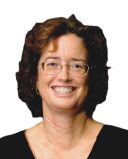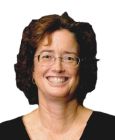Coronavirus Disease 2019
Lack of Rigor vs. Rigor Mortis in Scientific Communication
It is a matter of life or death.
Posted October 9, 2020
The president of the United States has been diagnosed with COVID-19 and is being treated with an experimental medication. Scientists and physicians are wringing their hands because they know that the drug has not yet met the experimental standards required to demonstrate that it is safe and efficacious. Members of the public are trying to figure out what that means while hoping the experts know what they are doing.
In a highly polarized political atmosphere characterized by fundamental disagreements about life-altering public health issues, far too few Americans actually understand what the experts are saying. Scientists sequestered in their labs, often funded by federal grants, conduct research on subjects most of can’t pronounce. Their findings have changed the ways our cars are powered, the way surgeons repair our bodies, the way we share information across the internet, and virtually everything we consume or use in our daily lives. But they talk to each other in acronyms and jargon it took them decades to learn, and often lack the ability or the will to translate that information into words the public can understand.
On average, scientists in the U.S. spend four to five years obtaining a doctoral degree, after four years of undergraduate study. They typically spend another three to four years working as a post-doc in a more established scientist’s lab, trying to establish their own career. After spending more than a decade earning the letters behind their name, many scientists want nothing more than to work and talk with the small group of people who speak the same language they do. In addition, their career success is based on how many highly structured, peer-reviewed articles they publish in scientific journals. But as with any elite group, this closed-door attitude does little to help the rest of us understand what they are doing, or why we should care. Far too often, those of us who are busy with our own lives assume we can count on the media to figure that out for us.
However, few journalists are trained in science, or even routinely report on the same topics or disciplines. As a result, they often focus on simplistic, or even false findings that are sensational enough to garner attention and fail to identify the original source of their information. Further muddying the water is the fact that scientific articles often take years to get published. Understandably, such delays do little to help us in the midst of a global pandemic.
To circumvent these problems many scientists have turned to posting non-peer-reviewed results or “pre-prints” on open science websites to facilitate the rapid exchange of information. Journalists in turn are reporting these findings to an audience that may not realize that the findings have not been peer-reviewed. While gaining early access to data has undoubtedly increased the speed at which scientists have been able to identify and develop treatments for the COVID-19 virus, eliminating the review process has also increased the chance that false or even dangerous information is disseminated.
At this point, as the pandemic drags on it is tempting to conclude that there we have to choose between soundbites and internet speculation and rigorous scientific papers that are incomprehensible to the average person. But perhaps there is a way to promote scientific and journalistic rigor, while avoiding the type of communication that causes mental rigor mortis in readers trying to understand how to avoid virally related physical rigor mortis. In the field of science education, there is a growing effort to train researchers in public speaking.
One of the unlikely leaders of this movement is actor Alan Alda. In addition to playing a doctor on the television show M*A*S*H, he narrated PBS’s Scientific Frontiers series. He has said that after interviewing over 700 scientists, he realized that their findings are fascinating, but they typically aren’t very adept at conveying them to non-scientists. This observation eventually led to the formation of the Alan Alda Center for Communicating Science at Stony Brook University. This internationally renowned program trains scientists to talk about their work using storytelling and improvisational acting techniques. Universities such as Rutgers University are now incorporating these practices in their graduate training programs.
But the onus of change shouldn’t be solely on people who are generating the research. There is increasing consensus that journalists who cover science should develop expertise in specific areas, and that journalists and scientists should collaborate to ensure that articles in the press present information in accurate, non-biased ways. But even that won’t be enough unless the general public makes the effort to become informed consumers. In the age of the internet people who spend hours on Facebook should be able to judge the validity of an ad on a brain supplement by locating the original study.
We also need to focus more on understanding the statistics being thrown at us. For example, in recent weeks newscasters have been arguing that the US has the worst Corona Virus record in the world. But is that accurate? Based on the total number of people in a country who have been diagnosed with the disease, we are number one, But, if you report that number as a percentage of the total population, we are currently number 10 which means we are doing better than countries like Spain and Brazil and are virtually tied with Great Britain. If you look at the case fatality rate, or number of infected people who have died from the virus, we aren’t even in the top 25 (See Johns Hopkins data below). Clearly the way the numbers are reported matters.
If this pandemic has taught us anything, it is that the way we talk about science can have life or death consequences so there is no reason that we should have to choose between accessible articles that lack rigor, or jargon laced technical documents that cause cognitive rigor mortis. The bottom line is that becoming informed consumers of science, holding journalists to high standards, and training scientists to explain their research is a matter of life and death during a pandemic. Perhaps if we had already done this the failure to understand the importance of wearing a mask would have killed fewer Americans. But don’t take my word for it. Start with the links below, see where they take you, and then make up your own mind.
References
Adalja, A. (2020). The only Hydroxychloroquine story you need to read. Leapsmag. https://leapsmag.com/the-only-hydroxychloroquine-story-you-need-to-read…
Alan Alda Center for Communicating Science at Stony Brook University. https://www.aldacenter.org/
Boston University. (2017) Postdoc jobs in biomedicine don't yield positive returns in the labor market. ScienceDaily. Retrieved October 3, 2020 from www.sciencedaily.com/releases/2017/01/170110151415.htm
Chu, DK., Akl, E.A, Duda, S. et al. (2020). Physical distancing, face masks, and eye protection to prevent person-to-person transmission of SARS-CoV-2 and COVID-19: a systematic review and meta-analysis. Lancet. 2020; (published online June 1.)https://doi.org/10.1016/S0140-6736(20)31142-9
Dubrow, J. The power of numbers: making sense of media statistics. Center for Media Literacy. https://www.medialit.org/reading-room/power-numbers-making-sense-media-…
Figdor, C. (2017). Is Science Reporting Ethical? The Case for Recognizing Shared Epistemic Responsibility in Science Journalism. Frontiers in Communication, 2. https://doi.org/10.3389/fcomm.2017.00003
Grant, W.J. & Lamberts, (2017). Alan Alda on the art of science communication: ‘I want to tell you a story’. The Conversation. https://theconversation.com/alan-alda-on-the-art-of-science-communicati…
Kubota, T. (2020). Stanford researchers discuss the benefits- and perils- of science without peer review. Stanford News. https://news.stanford.edu/2020/04/06/open-science-era-covid-19/
Lorden J.F., Kuh C.V., & Voytuk, J.A., editors. (2011). Research-Doctorate Programs in the Biomedical Sciences: Selected Findings from the NRC Assessment. Washington (DC): National Academies Press (US); https://www.ncbi.nlm.nih.gov/books/NBK82480/
Mortality Analysis. Johns Hopkins University & Medicine Coronavirus Resource Center. https://coronavirus.jhu.edu/data/mortality
National Association for Media Literacy Website: https://namle.net/about/
Ponzio, N. M., Alder, J., Nucci, M., Dannenfelser, D., Hilton, H., Linardopoulos, N., & Lutz, C. (2018). Learning Science Communication Skills Using Improvisation, Video Recordings, and Practice, Practice, Practice. Journal of Microbiology & Biology Education, 19(1), 19.1.15. https://doi.org/10.1128/jmbe.v19i1.1433




